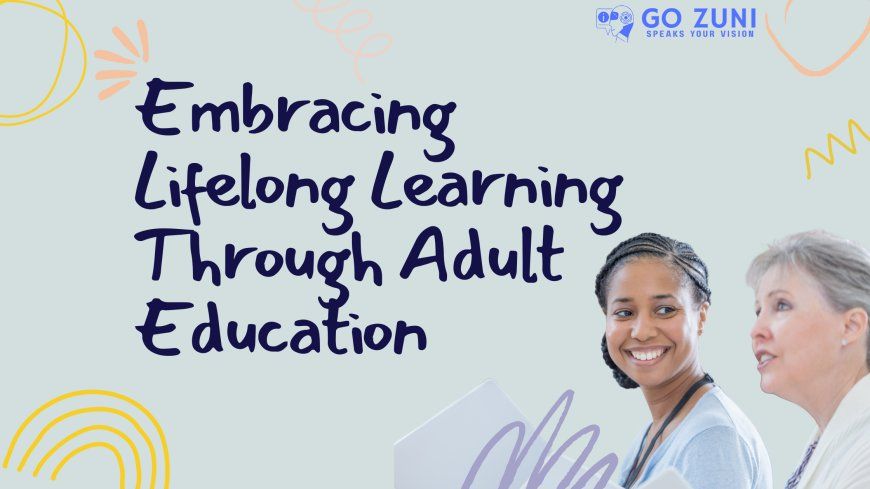Introduction: The Adventure Begins at Any Age
Remember the first time you logged into a computer lab, heart racing as you clicked around, wondering if you’d ever wrap your head around this digital world? If you’re an adult learner, that feeling probably hasn’t completely gone away and that’s a good thing. In the next five years, adult education is poised to undergo some of its most exciting transformations yet. Whether you’re juggling night classes after a 9-to‑5 or dropping into your local adult education center on weekends, here’s what you can expect and why it matters for your career (especially if you’re eyeing a move into IT).
1. Personalized Learning at Scale
Gone are the days of one-size-fits-all adult education programs. As an adult learner, you crave relevance: you want courses that understand your background, your schedule, and your goals. Expect powerful AI-driven platforms to recommend modules be it a Python crash course or a deep dive into cloud security that adapt to your progress and preferred pace. These platforms will help you skip what you already know and zoom in on exactly where you need skill development, making your night classes feel less like busywork and more like turbocharged career fueling.
2. Microlearning Meets Macro Impact
Life as an adult education student can be hectic. You might have a full‑time job, a family, and perhaps even that community theater hobby you swear you’ll get back to. Enter microlearning: bite‑sized lessons you can finish in 10–15 minutes on your commute or during lunch breaks. That short video on data visualization or interactive quiz on networking fundamentals is part of a bigger adult education program but it won’t eat into your evening downtime. Over time, these small wins compound into real expertise.
3. From Virtual Classrooms to Immersive Worlds
By 2030, virtual reality won’t just be for gamers. Imagine stepping into a simulated server room where you practice configuring firewalls, or using augmented reality overlays to debug real‑world hardware right from your living room. Adult education classes will increasingly incorporate VR/AR labs, making remote learning feel hands‑on. This shift will especially benefit IT career changers, who need practical, “learn‑by‑doing” experiences before they ever set foot in a traditional classroom.
4. Community-Driven Learning Ecosystems
Learning in isolation can be a slog. That’s why the next wave of adult education centers will double as collaborative hubs both online and off. Picture Slack‑style channels for your cohort, local meetups at your neighborhood adult education center, and peer‑mentoring programs that match you with someone who’s just a few steps ahead on the path to certification. These communities turn solo night classes into shared adventures, where you celebrate victories (hello, first successful code compile!) and troubleshoot challenges together.
5. Credentialing and Stackable Certificates
The phrase “degree or bust” is losing steam. More adult learners are looking for bite‑size credentials micro‑credentials or digital badges that stack into a portfolio of skills. Over the next five years, reputable adult education programs will offer clear “skill pathways” geared toward in‑demand IT roles. Want to become a cybersecurity analyst? Collect a series of certificates network fundamentals, ethical hacking, threat detection and watch your LinkedIn profile stand out. Employers will increasingly trust these modular credentials as proof of real‑world capability.
6. Lifelong Learning as a Cultural Norm
Most of us grew up thinking graduation equals “job secured.” But today’s pace of technological change means your education never really ends. Adult learning will shift from occasional night classes to an ongoing habit: quarterly workshops, annual upskilling retreats, and on‑demand webinars. Recognizing this, companies will partner with adult education centers to subsidize regular training days, making continuous learning part of everyday workplace culture. You won’t just sign up for a single course you’ll maintain a “learning subscription” to keep your skills razor‑sharp.
Conclusion: Your Next Steps
If you’ve ever hesitated to dive into adult education programs wondering where you’ll find the time or what actually sticks take heart. The next five years will bring flexible, personalized, and immersive options designed for busy adult learners like you. Start by exploring a micro‑credential in the IT skill you’re most curious about, join an online community for peer support, and carve out just 10 minutes a day for microlearning. Before you know it, you’ll look back and realize how far you’ve come from logging that first “Hello, World!” to landing the IT role you’ve been dreaming of.
